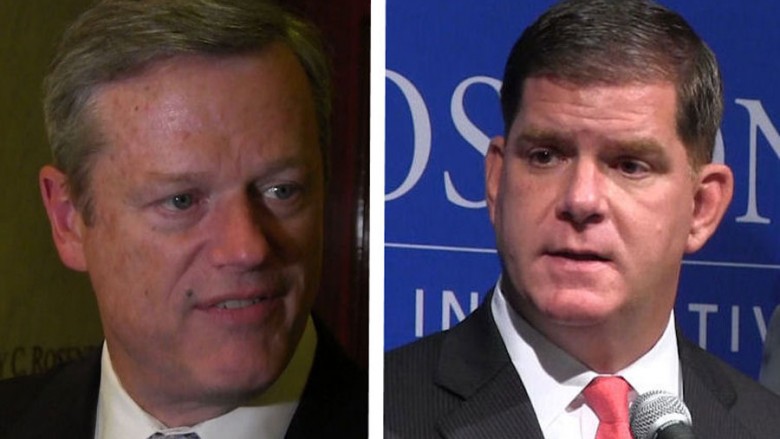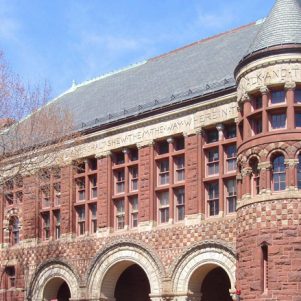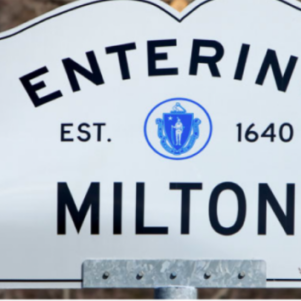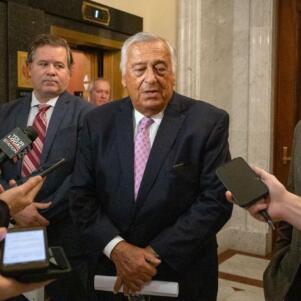Baker, Walsh urge swift action on opioid bill
By State House News Service | October 28, 2015, 6:03 EDT
 (State House News Service)
(State House News Service) STATE HOUSE — Boston Mayor Marty Walsh joined Gov. Charlie Baker on Tuesday to urge the Legislature to “swiftly act” on the governor’s bill aimed at stemming the tide of opioid addiction that they say kills four people a day in Massachusetts.
The legislation filed by the Republican governor on Oct. 15 proposes to limit first-time opioid prescriptions to a 72-hour supply and to give doctors the authority to hospitalize addicts against their will for up to 72 hours if they present a risk to themselves or others. Both of those ideas have quickly encountered resistance.
Walsh, a Democrat who has been an ally to the new governor on several issues early into the governor’s term, joined Baker in writing a 766-word letter to members of the Legislature on Tuesday defending key provisions of the bill, while also promising to work with lawmakers.
While the Senate has already passed an opioid abuse education and prevention bill without these key measures, the Joint Committee on Mental Health and Substance Abuse has scheduled a hearing on the governor’s bill for Nov. 16. The hearing falls just two days before the Legislature is due to wrap up formal sessions for the year, making it highly unlikely that any comprehensive action will be taken before 2016.
“The epidemic of opioid addiction sweeping through our cities and towns shows no mercy and we consider the initiatives in this bill to be significant tools in combating this unprecedented crisis. We need bold action to bend the trend in opioid deaths,” Baker and Walsh wrote.
The Massachusetts Medical Society and dentists have been critical of the proposal limitations on prescriptions, while House Speaker Robert DeLeo and Senate President Stanley Rosenberg have expressed reservations about taking the civil commitment process out of the courts and putting it into the hands of doctors.
Baker and Walsh argued in their letter that the civil commitment provision would increase access to emergency addiction treatment by mirroring a current law that allows patients with mental illness to be held by doctors for 72 hours without a court order.
“The bill includes strong provisions for due process and judicial oversight,” Baker and Walsh wrote.
In late September, Baker said he looked forward to having a bill-signing ceremony for opioid addiction prevention legislation before Thanksgiving, but as the filing of his own bill got pushed to the middle of October the governor appeared to dial down his expectations.
“I will be very surprised if we get too far into calendar ’16 without a pretty comprehensive set of recommendations,” Baker said after meeting with DeLeo and Rosenberg a week before he would file his legislation.
Asked at the time if the two Democratic leaders had said something to give him the impression that a bill wouldn’t get finished this fall, Baker said, “I did not hear anything from them that made me think it wasn’t going to happen, but I do think it’s important for the Legislature to have a chance to kick these issues around and kick them pretty hard.”
Last week, Baker held a press conference after a meeting with law enforcement officials to showcase support he has from that constituency for his bill.
Attorney General Maura Healey on Tuesday also urged the Legislature to “act soon” to pass legislation that would make trafficking fentanyl, a highly potent synthetic opiate, a separate crime with higher penalties than possession. The prodding came after the Centers for Disease Control and Prevention reported a significant increase in unintentional fentanyl related overdose fatalities and an uptick between 2012 and 2014 of fentanyl seizures.
Massachusetts ranked second behind only Ohio in 2014 for fentanyl seizures with 630.
— Written by Matt Murphy
Copyright State House News Service











